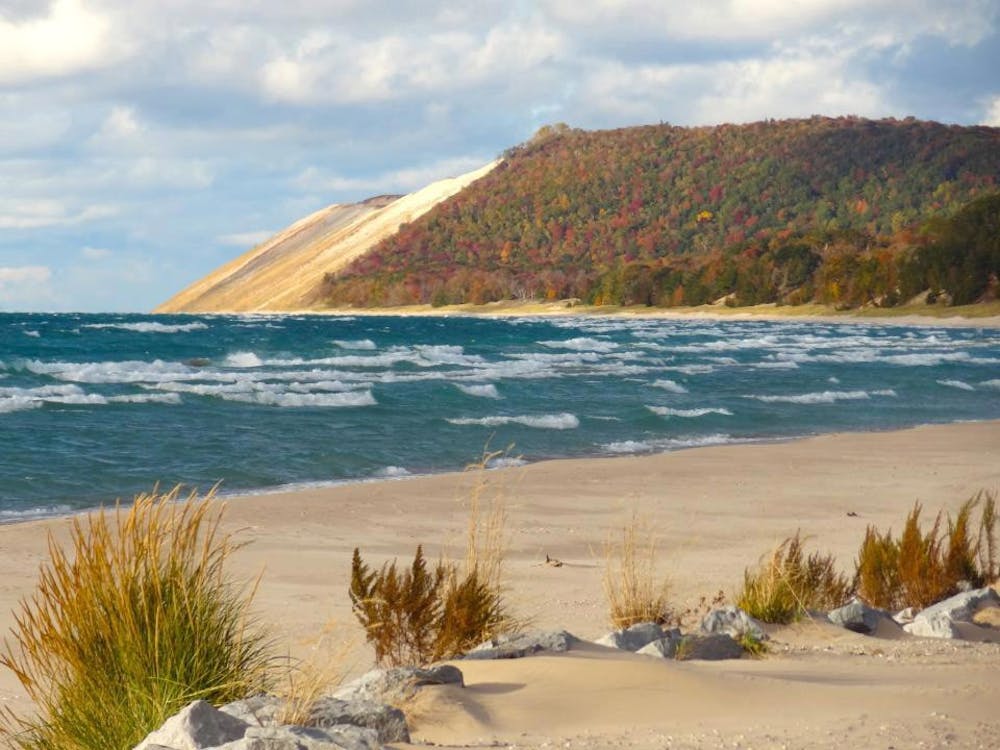COLUMN: Michigan is obligated to push for environmental protection
We have no shortage of natural wonders in Michigan.
The Great Lakes, Sleeping Bear Dunes and Mackinac Island are just a few of the famous natural phenomena that attract visitors to the state from all over the world. In fact, Michigan is ranked at number six of the most traveled states in America by The Microsoft News Network.
Michigan is the forest-clad gem of the Midwest; its environments and ecosystems have been admired and studied for generations. All of which are now under tremendous danger of being destroyed by pollution, the burning of fossil fuels and coal and modern industry in general.
Michigan Radio calculated an astounding loss in wetlands in south east Michigan. Some counties such as Monroe, Wayne, and Saginaw have lost over 80 percent of natural wetlands since some of the first settlements were established.
Logically, in order for technology and human innovation to occur, we must take some possession of our environment. However, important natural phenomena must be sanctioned as untouchable and should be protected at all costs. These locations include state parks, state-protected wetlands, forests and woodlands.
Michigan is home to one-fifth of all freshwater on Earth, thanks to the Great Lakes. Not only that, but the lakes are a primary component of the local fishing industry. Sea Grant Michigan, a conservational research organization said, “fishing generated an average of 465,417 employment hours per year and brought an average of $19.8 million per year into Michigan’s coastal communities over the past 20 years.”
Since the 1950s, the Great Lakes are continuously infested with invasive species such as the sea lamprey, zebra mussel and the round goby. The sea lamprey in particular is responsible for killing over 100,000 pounds of fish at its peak.
Luckily, organizations such as the Great Lakes Fishery Commission work in unison with the U.S. Fish and Wildlife Service, Fisheries and Oceans Canada, and the U.S. Army Corps of Engineers to conduct important research in sea lamprey control. This research has resulted in a 90 percent decrease in sea lamprey population in the majority of the Great Lakes.
Organizations like these that are involved in the preservation of our natural ecosystems work under little funding, funding that continues to be cut by the current administration. Back in February, The Detroit Free Press reported, “President Donald Trump's budget proposal for next year again calls for drastic cuts in Great Lakes restoration efforts.”
Trump called for the elimination of a $300 million-dollar program to help restore the Great Lakes. This would be devastating for Michigan residents as pollution levels will eventually increase to an untamable levels, resulting in a decrease in fish population and water quality.
Sleeping Bear Dunes are a vessel of the legend of the mother bear and her cubs, and they don't deserve to be a trash-covered hilltop. The Great Lakes are the only body of fresh water that has a horizon, we owe it to them to ensure they don't become polluted puddles.
As a native Michigander, I find myself dreading the thought that the beautiful natural attractions my family and I once visited and admired could fade from existence in less than a few decades.
The natural landscapes have people flocking to Michigan from all over the globe.
It's our obligation as its residents to keep Michigan clean and beautiful.







